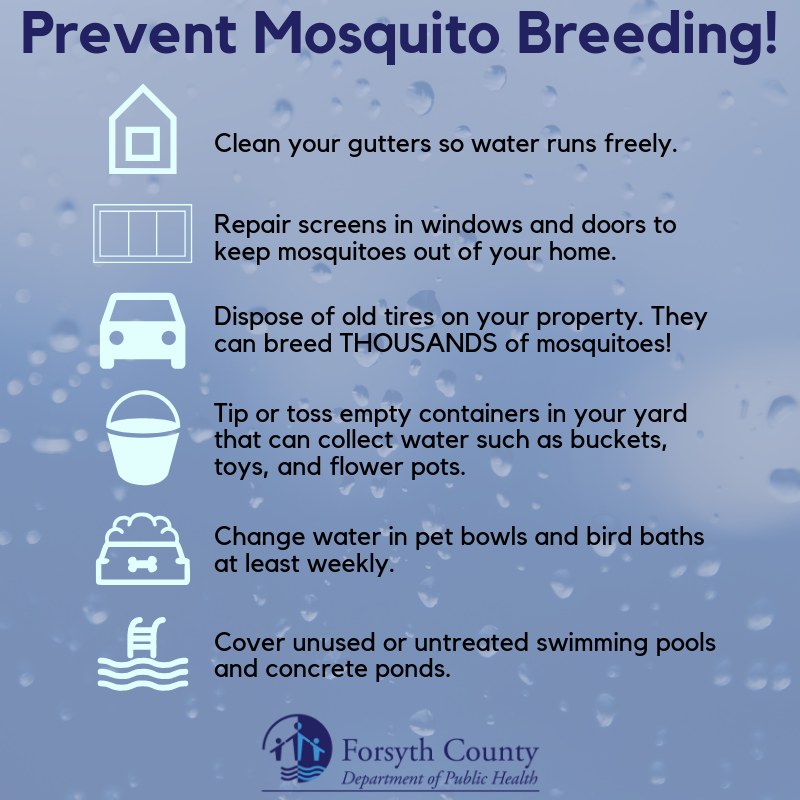
- By Sarah Frantz Isom, MPH, CHES
- Posted Wednesday, July 3, 2019
Fight The Bite: Controlling Ticks and Mosquitoes this Summer!
Last year, more than 800 cases of tick-borne diseases, and more than 100 cases of domestically acquired and travel-associated mosquito-borne disease were reported in North Carolina alone! While both ticks and mosquitoes are very common in our area, and we might be used to them as a minor annoyance, they can still carry bacteria and viruses that are harmful to our health. The best way to avoid possible serious illnesses is to take BOTH preventive and protective measures. Use the following tips to help fight the bite this summer:
TICKS:
- Avoid tick habitats. Ticks like to live in wooded, grassy, or brushy areas.
- Use an EPA-registered insect repellant if you have to be in tick habitats. Repellents that contain DEET or an equivalent are the most effective on exposed skin, and permethrin-treated clothing is a good option too. Use caution when applying on children and around your eyes, nose, and mouth.
- If there is a tick attached to your body, carefully remove the tick by grasping it with fine-tipped tweezers. Make sure to grasp as close as possible to your skin. Apply a steady, gently pull until the tick releases its grasp on your body.
MOSQUITOES:
- Use an EPA-registered insect repellent when outside. Use caution when applying on children and around your eyes, nose, and mouth.
- When outside, wear long-sleeved shirts and pants, if possible. The less skin you have exposed, the less area a mosquito has to bite!
- Make sure your windows and doors have intact screens. If you don’t have screens, utilize air conditioning instead of keeping your windows or doors open.
- Reduce mosquito breeding habitats! Empty standing water from flower pots and saucers, gutters, buckets, pools and pool covers, pet water dishes, discarded tires, and birdbaths.

Ticks and mosquitoes can cause several diseases found here in North Carolina. The tick-borne illnesses most often found here are Rocky Mountain Spotted Fever, Ehrlichiosis, Lyme Disease, and Southern Tick-Associated Rash Illness (STARI). The most frequent mosquito-borne illnesses, also known as arboviruses, in North Carolina include La Crosse encephalitis, West Nile virus, and Eastern equine encephalitis.






